$14.75 billion reason Donald Trump will spare Australia in tariff war
Australia is expected to Trump’s trade war for now, but the indirect consequences could hit us where it hurts.
World
Don't miss out on the headlines from World. Followed categories will be added to My News.
IN THE US
US President-elect Donald Trump’s dramatic late night announcement that he plans to impose hefty tariffs on the country’s two closest neighbours could dramatically backfire, harming Americans.
In a post to his social media platform Truth Social on Monday, US time, the 78-year-old said he would impose a 25 per cent tariff on products from Mexico and Canada, both US allies, and an additional 10 per cent tariff on products from China.
He claimed it would be one of “many first Executive Orders” signed on January 20 next year – the inauguration of Mr Trump as the 47th president of the US.
The reaction has been swift. Canadian Prime Minister Justin Trudeau made a hurried late night call to Mr Trump after fears the tariff move could spark a recession in his country. Mexico’s President Claudia Sheinbaum has played tough suggesting her country may do tit-for-tat tariffs. While a Canadian premier said the tariff plan would be “devastating”.
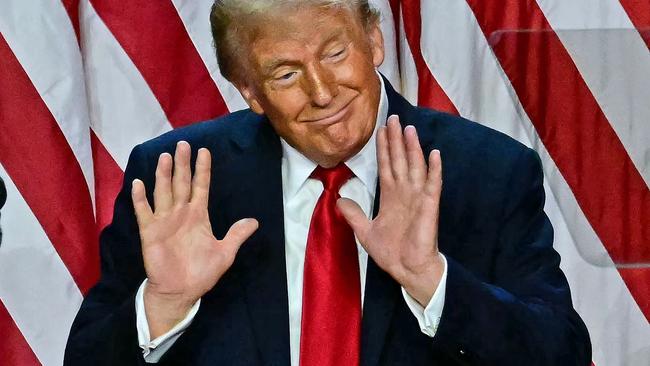
MORE: Ivanka reveals ‘hurtful toll’ behind Trump snub
Mr Trump said the tariffs had come about because the countries weren’t doing enough to stop the drug fentanyl entering the US. He additionally criticised Mexico and Canada for the number of immigrants crossing the border.
“Both Mexico and Canada have the absolute right and power to easily solve this long simmering problem,” said Mr Trump.
“We hereby demand that they use this power, and until such time that they do, it is time for them to pay a very big price!”
Why Trump will spare Australia in tariff war, iron ore threatened
A former deputy US Trade Representative says that while the US has a trade surplus (the difference between a country’s export value and import cost) with Australia, it faces trade deficits with other countries, raising concerns about the broader implications of a potential trade war led by Mr Trump.
Sarah Bianchi, who held the role until earlier this year, said that, unlike Australia, the United States was running trade deficits against all three countries, putting them in Mr Trump’s firing line.
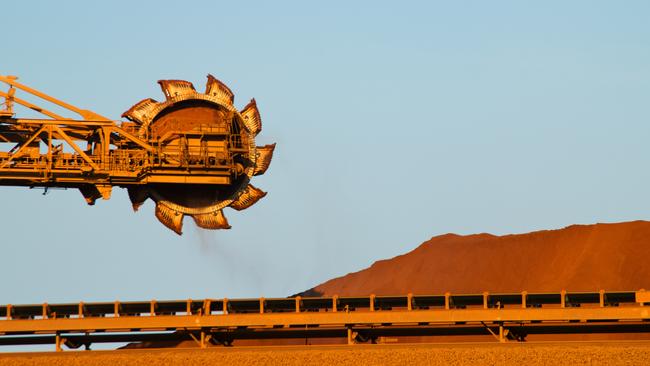
Ms Bianchi, who now works for investment bank Evercore ESI, told The Australian Financial Review today, “Australia doesn’t have a trade deficit with the US, so that is what they are focused on.”
However, she agreed that Australia faced impacts from a Trump trade war further down the line, with a slowdown in the Chinese economy potentially leading to lower demand for Australian commodities like iron ore.
The Reserve Bank of Australia has also warned a trade war between the US and China could torpedo the local share market, potentially forcing it to cut interest rates to prop up the economy.
The US currently has a trade surplus of $14.75 billion with Australia.
Canada border crossings soar
The number of people crossing from Canada into the US illegally has always been far lower than those coming from Mexico.
But the numbers are now soaring. In the last 12 months almost 200,000 people have been picked up by US border patrol crossing the Canadian border. Two years ago that figure was 110,000. Although that’s still not even 10 per cent of the crossings from Mexico into the US.
Partly, the rise in Canadian crossings has been driven by a crackdown on the southern border – put in place this year by US President Joe Biden – which has seen illegal crossings plummet. Some of those people, many from Mexico itself, have headed to Canada instead where the border is more lightly patrolled.
There are unique issues too. Many of those making the illegal immigration trek from Canada to the US are from India and East Asia.
That’s thought to be due to more favourable visa conditions for particularly Indian nationals in Canada, some of whom then head to the US for the hope of more work.

Late night calls, backfire concerns
Mr Trudeau said he phoned Mr Trump on Monday night.
“We talked about some of the challenges that we can work on together. It was a good call.
“This is a relationship that we know takes a certain amount of working on, and that’s what we’ll do,” he said.
Mr Trudeau indicated that Canada was willing to more aggressively tackle border issues.
Doug Ford, the premier of Canada’s largest province Ontario, was blunt. He said on social media that a 25 per cent tariff would be “devastating to workers and jobs in both Canada and the US,” and urging Mr Trudeau to “take the situation at our border seriously”.
Around three quarters of Canadian exports head to the US amounting to $675bn annually. So across the board tariffs would cause huge damage. US consumers would likely buy less Canadian products because of the higher prices.
The Canadian dollar fell to a four and a half year low on Tuesday.
But Mr Trump’s move could backfire pushing up prices in the US.
When it comes to crude oil, 97 per cent of Canada’s oil exports go to the US amounting to $180bn annually.
Canada also supplies significant amounts of electricity to the US, in some areas it literally keeps American lights on. Canada is also the source of virtually all the US’ natural gas imports.
It’s not easy to simply replace these imports with US made alternatives. Tariffs could send petrol and electric prices soaring in the US pushing up inflation. Yet during the election, Mr Trump said taming inflation – which he blamed on Mr Biden – was a key promise.
In addition, the US and Canadian car industries are heavily intertwined.
The Canadian American Business Council said imposing tariffs would “harm businesses on both sides of the border and erode the economic and geopolitical strength of North America”.
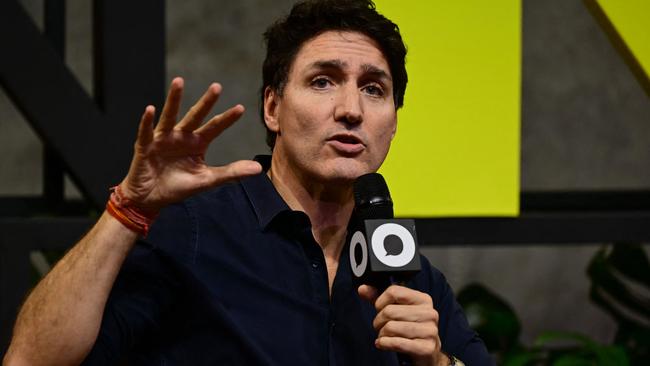
Mexico threatens tariffs
Mexican’s newly installed President Claudia Sheinbaum revealed a letter she was sending to Mr Trump warning him that inflation would rise, jobs would fall and tariffs work both ways.
“To one tariff will come another and so on, until we put our common businesses at risk,” she wrote.
The US imports more from Mexico than any other nation with cars and computers key products that head to America.
She reminded Mr Trump that the number of migrants moving illegally across the border has reduced. From almost 2.5 million in 2023 it’s now down to around two million. Which is likely still two million too much for Mr Trump.
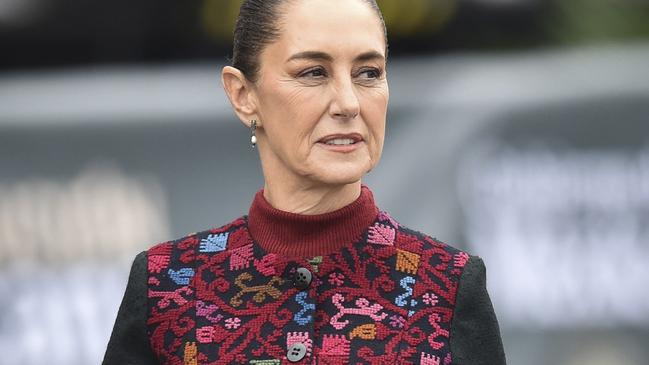
China hits back
China has warned that “no one will win a trade war”.
“China believes that China-US economic and trade co-operation is mutually beneficial in nature,” Liu Pengyu, a spokesman for China’s embassy in the United States, said in an email to AFP.
“I have had many talks with China about the massive amounts of drugs, in particular fentanyl, being sent into the United States – But to no avail,” Mr Trump wrote.
“Representatives of China told me that they would institute their maximum penalty, that of death, for any drug dealers caught doing this but, unfortunately, they never followed through, and drugs are pouring into our Country, mostly through Mexico, at levels never seen before.”
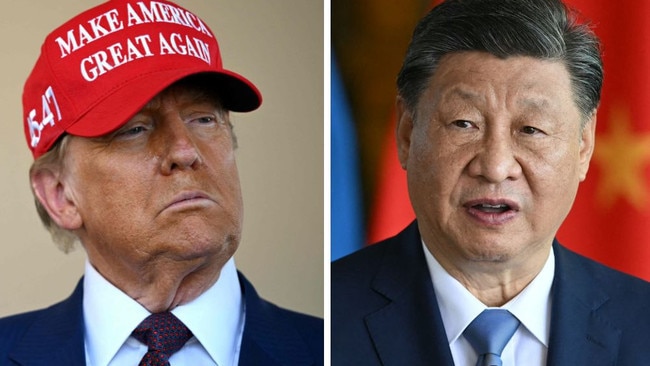
MORE: Ivanka reveals ‘hurtful toll’ behind Trump snub
Some economists, however, are doubtful Mr Trump would follow through with his tariff threat.
“Trump will not do big tariffs, but he definitely will say that he did,” American economist Betsey Stevenson said on social media.
“Whatever policy passes will have loopholes big enough to push a container ship or a huge fresh vegetable truck from Mexico through”.
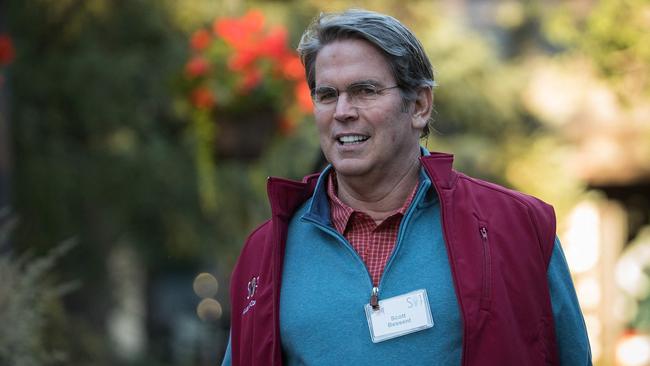
MORE:High roller Trump kids’ multimillion dollar digs
Scott Bessent, the billionaire who Mr Trump named as his Treasury secretary last week, described tariffs as a “useful tool for achieving the president’s foreign policy objectives”.
“Whether it is getting allies to spend more on their own defence, opening foreign markets to US exports, securing co-operation on ending illegal immigration and interdicting fentanyl trafficking, or deterring military aggression, tariffs can play a central role,” he wrote in an opinion piece for Fox News.
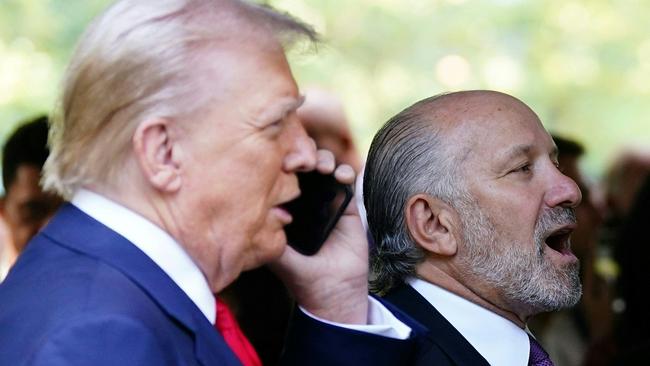
Mr Trump has said he will put his commerce secretary designate Howard Lutnick, a China hawk, in charge of trade policy.
Mr Lutnick has expressed support for a tariff level of 60 per cent on Chinese goods alongside a 10 per cent tariff on all other imports.
William Reinsch, senior adviser at the Center for Strategic and International Studies, said that that move was classic Trump: “threaten, and then negotiate”.
“In terms of what might actually happen, I’d bet on some China tariffs going into effect. That’s legally easier and politically more palatable,’ he said.
“On Canada and Mexico there was going to be a renegotiation of their trade deal (called the USMCA) anyway in 2026.”
– with AFP and additional reporting by Chantelle Francis.
Originally published as $14.75 billion reason Donald Trump will spare Australia in tariff war
Read related topics:Donald Trump





